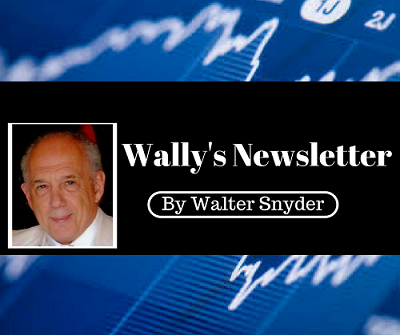Recession Ahead

The September FOMC meeting did not result in an immediate interest rate hike, but it seems highly probable that there will be a December interest rate increase while balance reduction should start in October with further interest rates increases in 2018. Experience indicates that the Fed is getting ready to bring about a recession as soon as markets take the hint that the days of easy money and cheap credit are coming to an end.
Fiscalization has contributed to the extraordinarily high asset prices on Wall Street and the fantastic windfalls that corporate management has reaped since 2008. In order to make executives rich, companies have gone into debt in a way not seen before. Instead of investing profits in R & D, new factories and income-producing innovations or trying to improve productivity, companies have paid dividends and bought back stock to the extent that what has been paid out exceeds by far any profits that were made. At the same time EPS increased and P/E ratios went higher and higher as the stock buybacks pushed up the price of equities. CEOs could keep their jobs and become richer.
The Fed theoretically wanted to help the economy recover from the Great Recession by making available large amounts of liquidity and lowering interest rates. However, because companies went deep into debt by taking advantage of cheap credit, growth slowed because of the debt and the emphasis on fiscalization. The Federal government under Obama went headlong further into debt, which now stands at over US$20T (20 trillion or 20,000,000,000,000.00). One is reminded of the Italian national debt expressed in lira or the national debt of Japan expressed in yen. That is over 100% of GDP. States and municipalities are also deep in debt. Quo vadis?
Given that trading on the markets is now mainly in the hands of algorithms of traders, central bank intervention has become the norm, huge amounts of liquidity have been injected into the economy and massive debt is everywhere, one could conclude that this time is going to be different. This means denying that the real economy is cyclical and that the rally can go on forever. That is not realistic.
Geopolitical events seem not to have any effect on the market. North Korea explodes a nuclear bomb, and Wall Street does not wince at all. Such behaviour would indicate that the markets are somehow disjunct from the real world. We shall see what happens when the computers panic because of a Black Swan event. ETFs may also play their part when buying the dip is no longer a solution.
Walter Snyder
info@swissfinancialconsulting.ch
Disclaimer This Newsletter has been prepared by WWS Swiss Financial Consulting SA (the company). Even though every effort has been taken to ensure the accuracy of the content of the Newsletter, there is absolutely no guarantee that the information contained in it is correct, up-to-date, accurate or otherwise applicable. It is not intended as a solicitation, invitation or recommendation for the purchase or sale of any investment fund or product or security or financial instrument or to participate in any particular trading strategy or banking product in any jurisdiction. It is not to be distributed in any country or area where it is legally prohibited. No liability whatsoever is or will be assumed by the company for any damage, loss or negative result of any sort ensuing from following views expressed and contained in the Newsletter. Investors themselves assume the full risk for any decisions that they take (caveat emptor). The Newsletter may not be reproduced or published by anyone anywhere in any way or form without the express written permission of the company.

